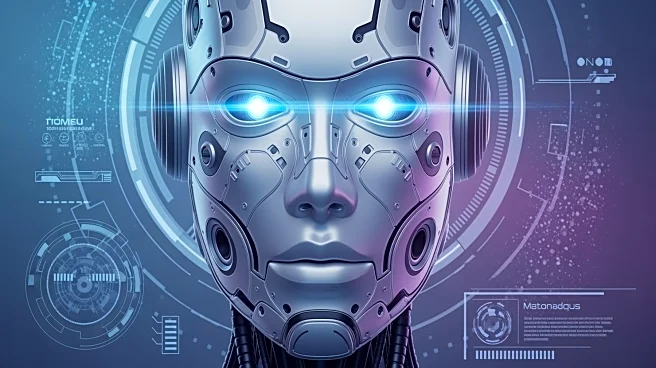What's Happening?
Bryan Cranston, along with SAG-AFTRA and major talent agencies, has successfully collaborated with OpenAI to address concerns regarding the unauthorized use of actors' likenesses in AI-generated videos on the platform Sora 2. Initially, Cranston and other
stakeholders raised alarms when the platform allowed users to create videos using his image without consent. In response, OpenAI has implemented new guardrails to protect actors' voices and likenesses, allowing performers to opt-in for their likenesses to be used. This move comes after a video featuring Cranston's character from 'Breaking Bad' interacting with Michael Jackson circulated online, prompting immediate action from Cranston's representatives and industry stakeholders.
Why It's Important?
The resolution of this issue is significant as it highlights the growing concerns within the entertainment industry regarding AI's potential to misuse actors' identities. The collaboration between OpenAI and industry stakeholders underscores the importance of protecting performers' rights in the digital age. By endorsing the No Fakes Act, OpenAI and SAG-AFTRA are advocating for federal legislation to prevent non-consensual digital replicas, which currently lack comprehensive protection outside certain states. This development is crucial for actors, as it sets a precedent for how AI technologies should respect intellectual property and personal rights, potentially influencing future policies and industry standards.
What's Next?
OpenAI's commitment to an opt-in protocol for using performers' likenesses on Sora 2 suggests ongoing efforts to refine AI technologies in alignment with industry standards. The endorsement of the No Fakes Act by OpenAI and SAG-AFTRA indicates a push for federal legislation that could provide broader protections for actors nationwide. As AI continues to evolve, stakeholders in the entertainment industry may need to engage in further collaborations to ensure ethical use of AI technologies. The resolution of this case may encourage other tech companies to adopt similar measures, fostering a more secure environment for digital content creation.
Beyond the Headlines
The ethical implications of AI's ability to replicate human likenesses are profound, raising questions about consent, privacy, and intellectual property rights. This case highlights the need for a balance between technological innovation and the protection of individual rights. As AI becomes more integrated into creative industries, ongoing dialogue between tech companies and industry stakeholders will be essential to navigate these complex issues. The collaboration between OpenAI and SAG-AFTRA may serve as a model for other sectors facing similar challenges, emphasizing the importance of proactive measures to safeguard personal and professional identities.

















